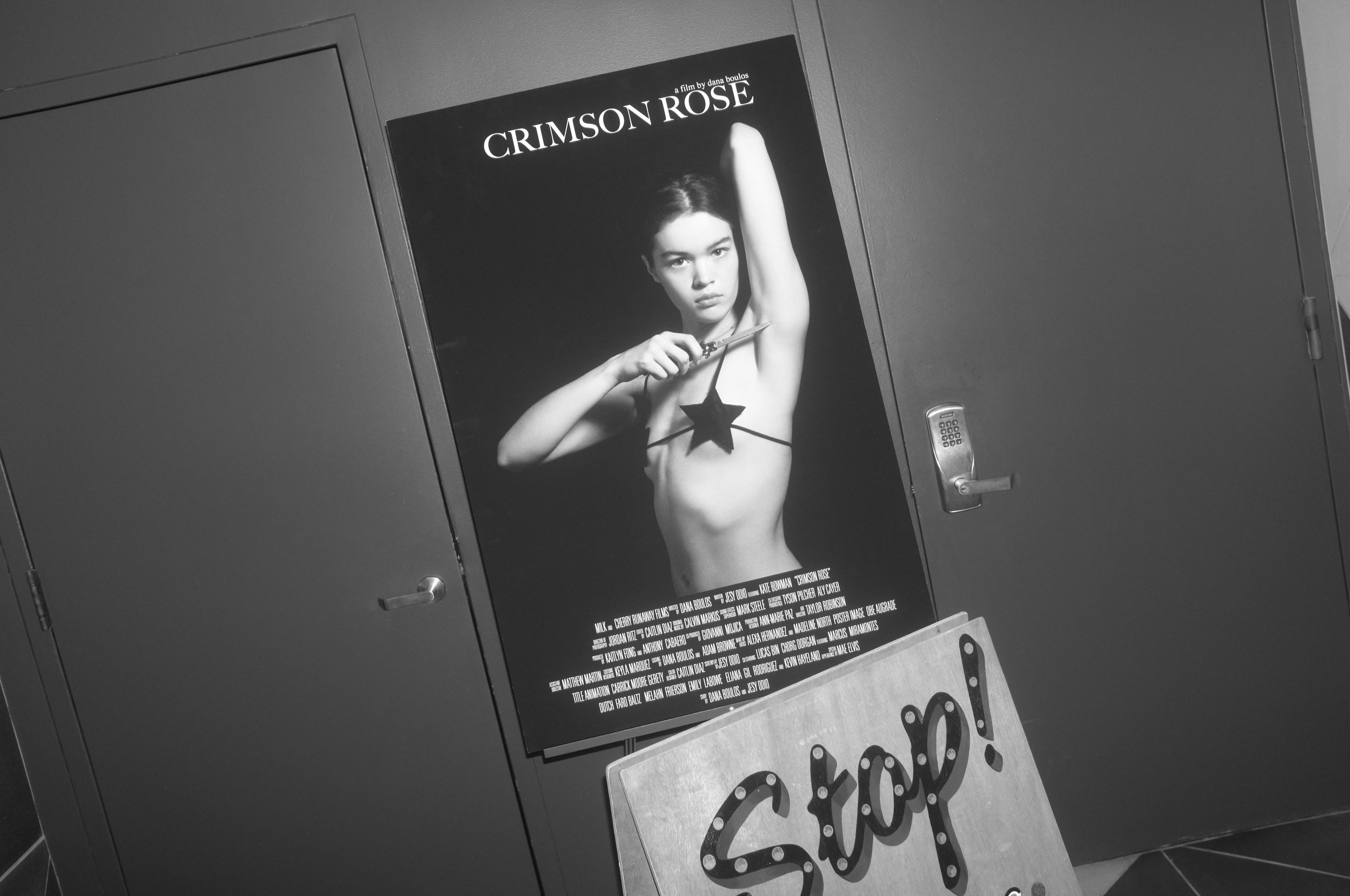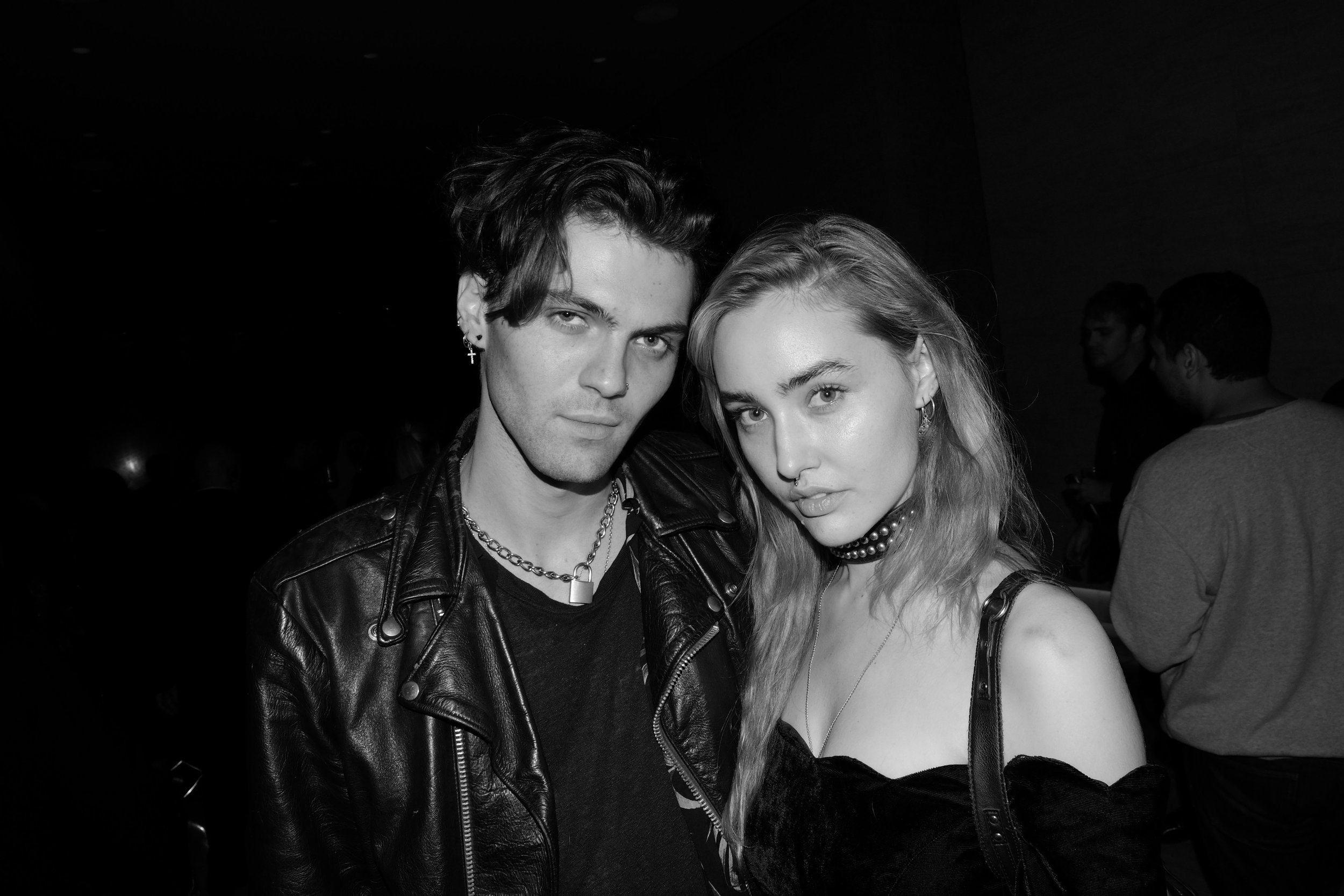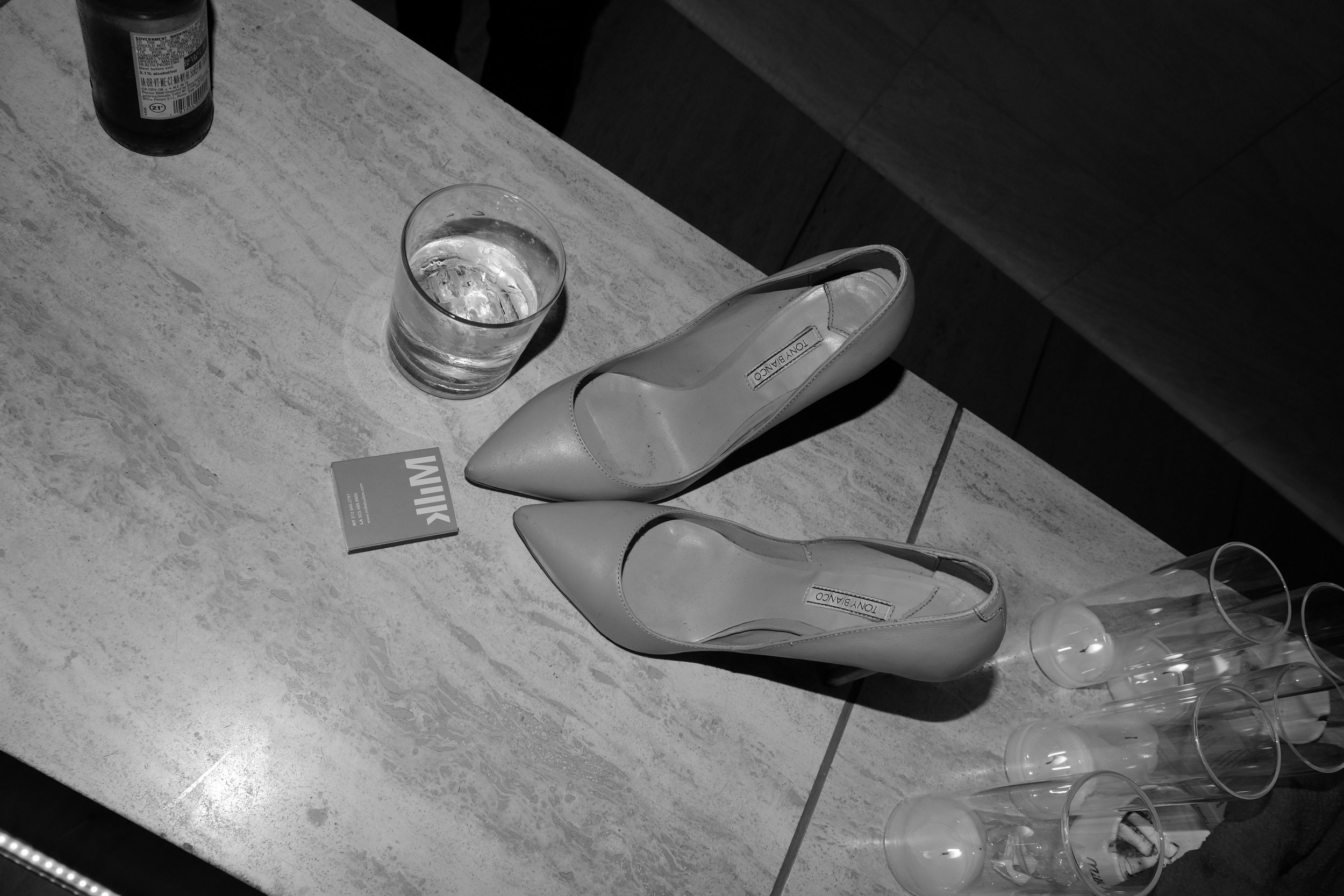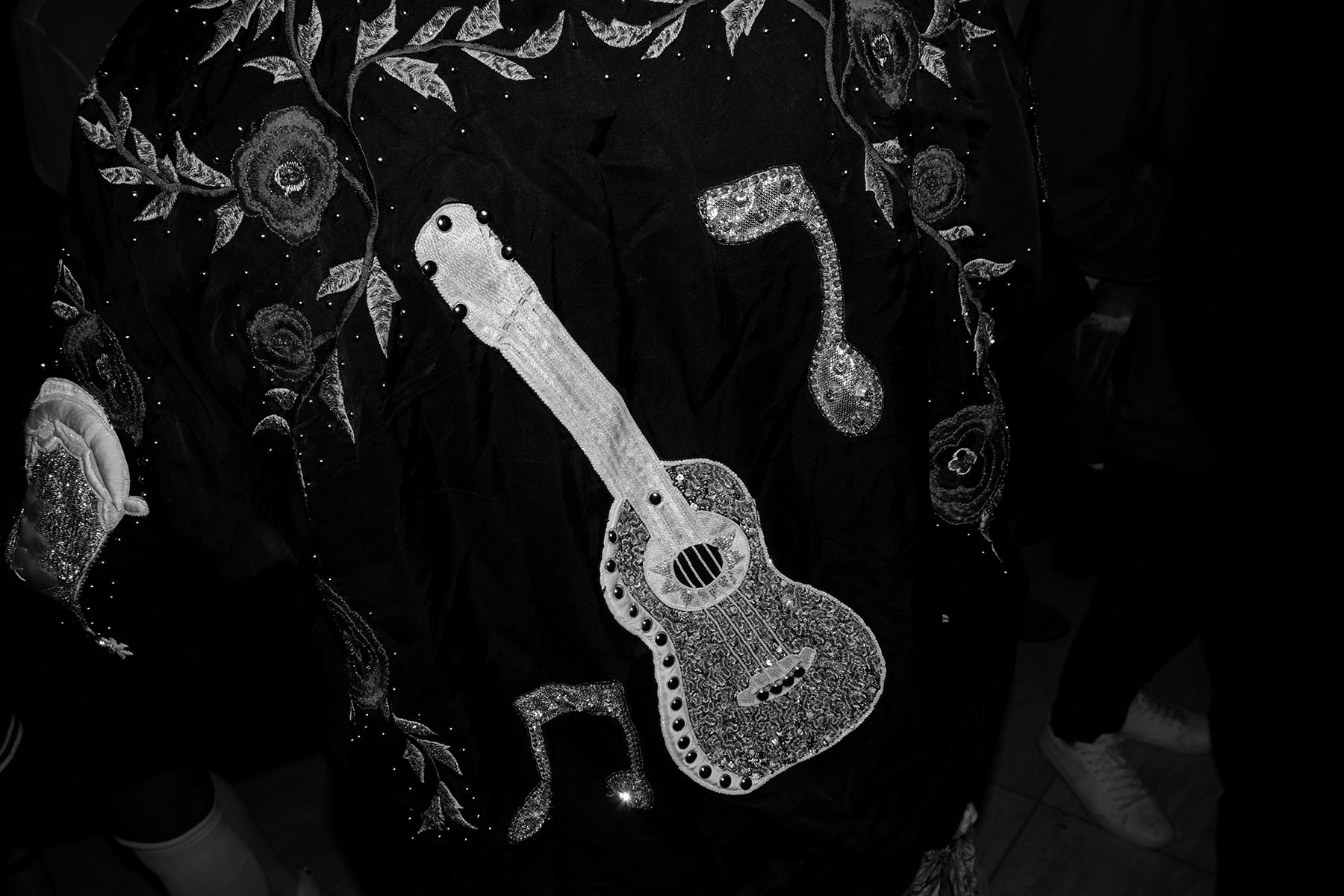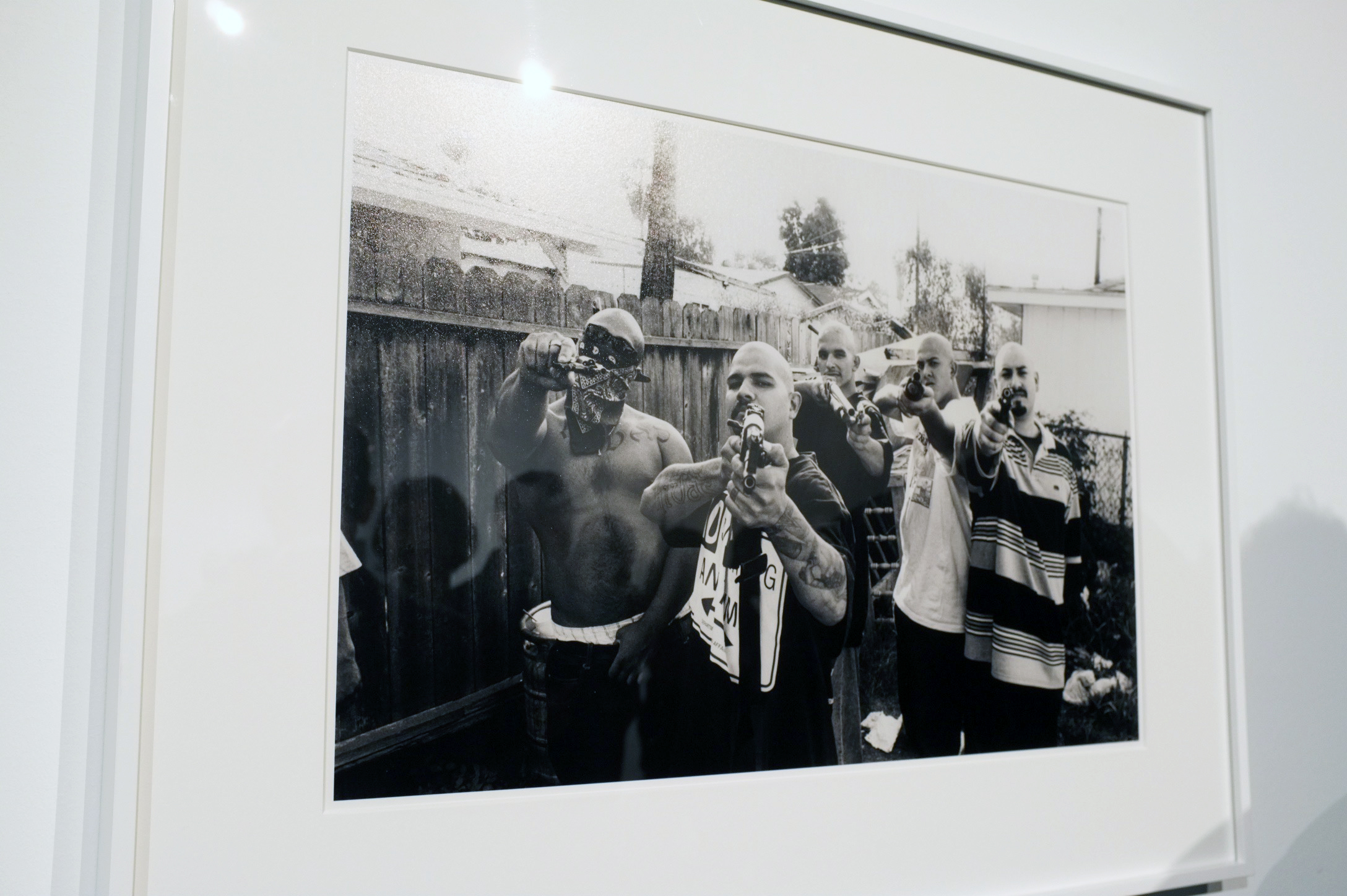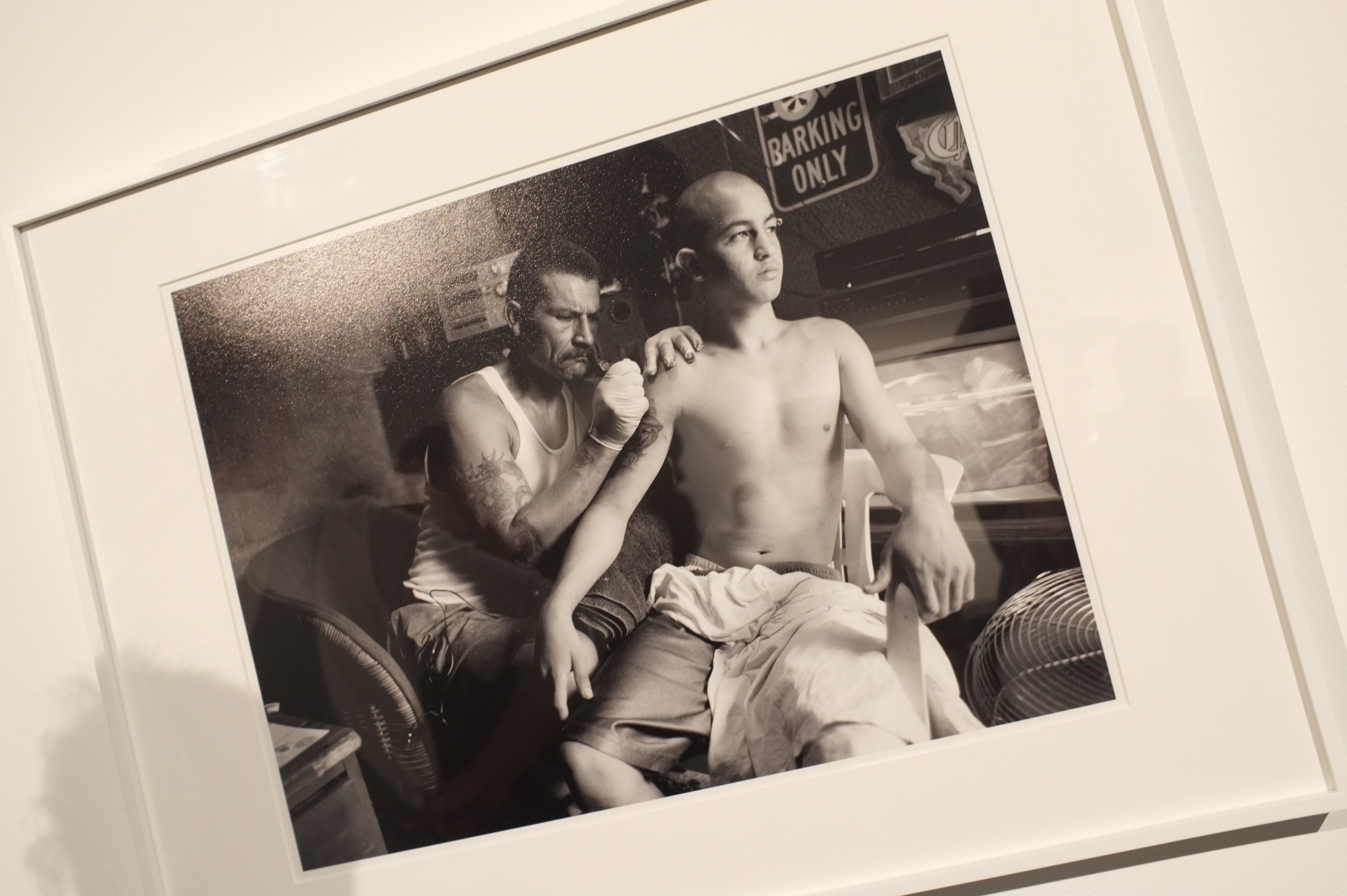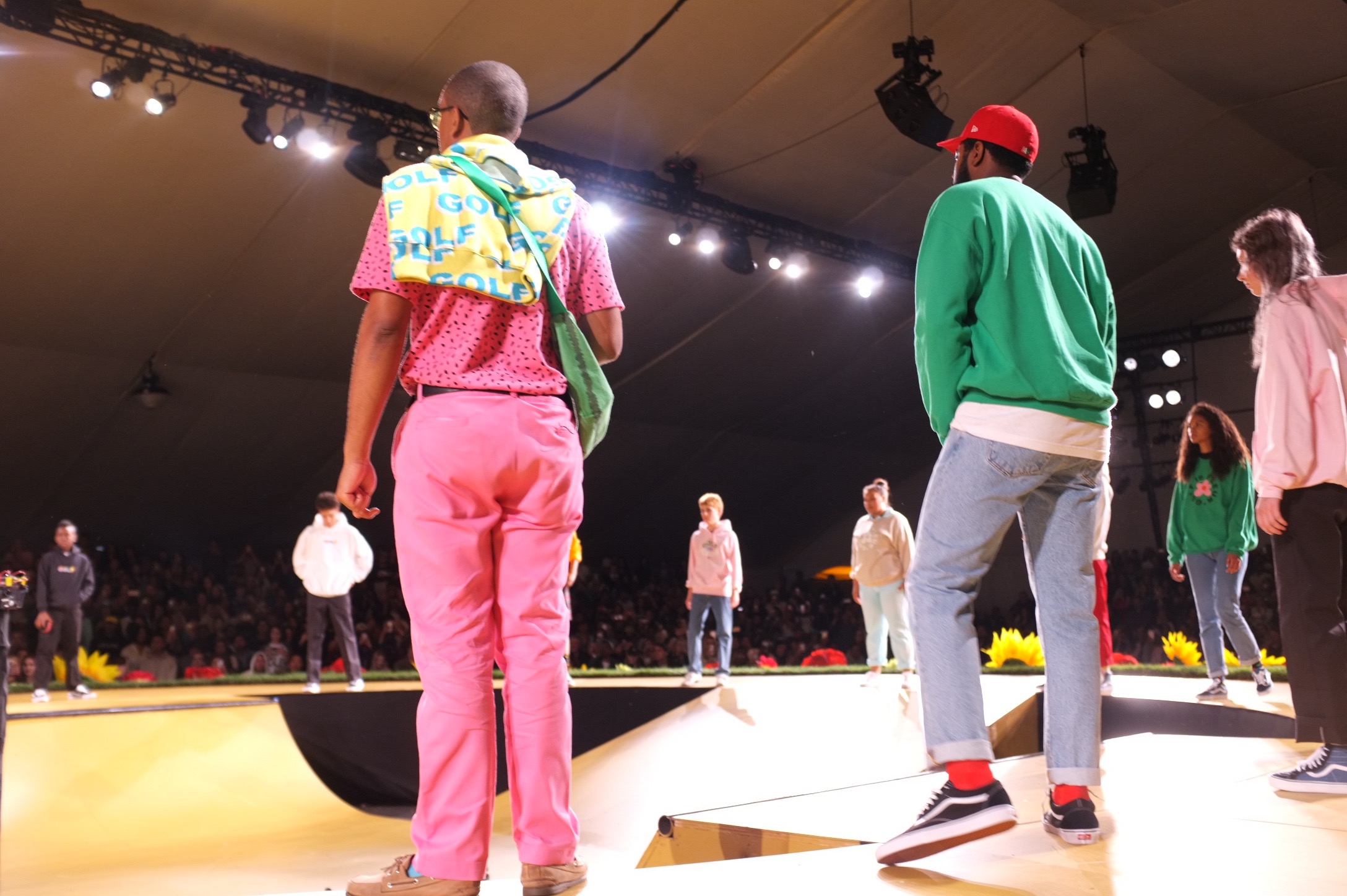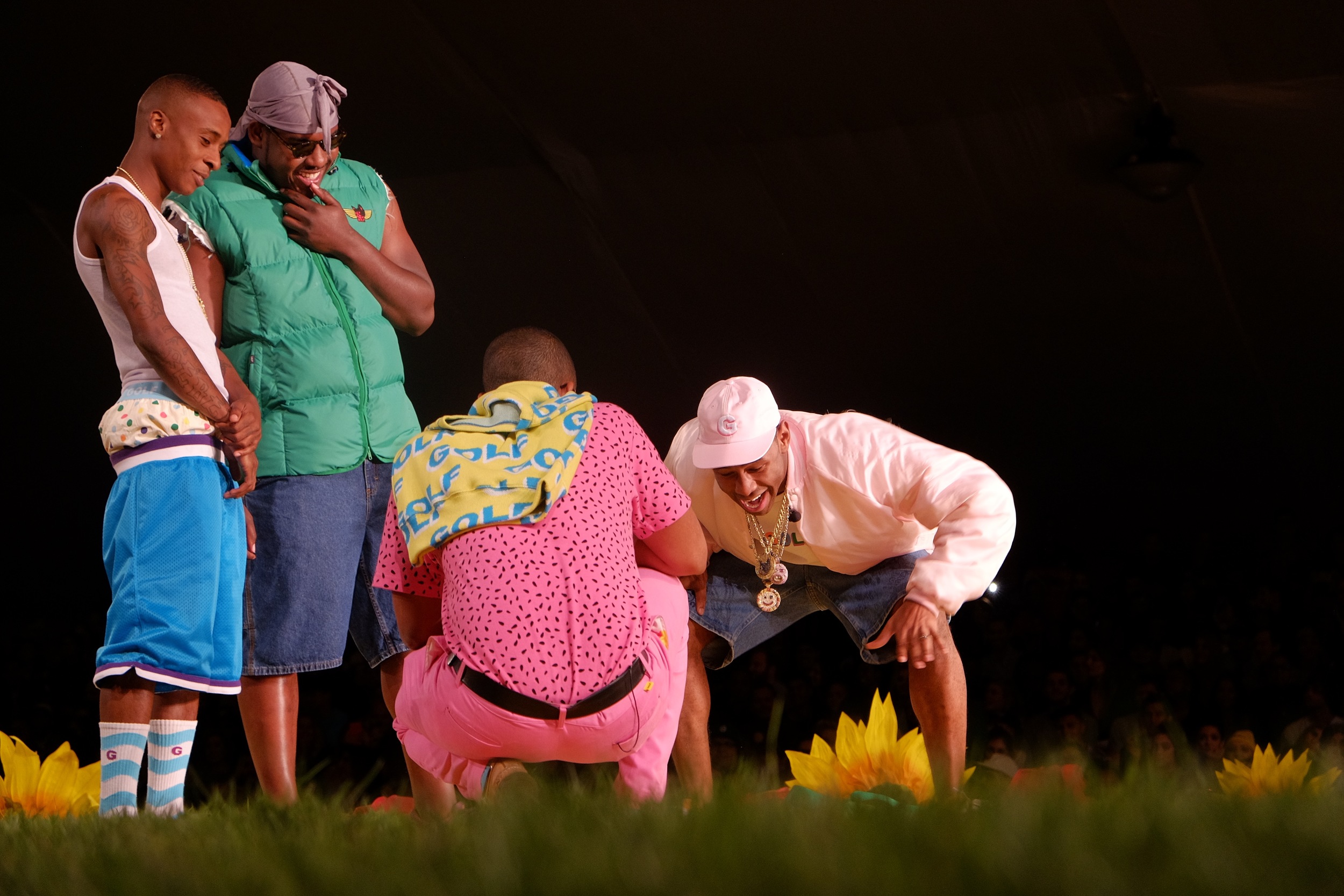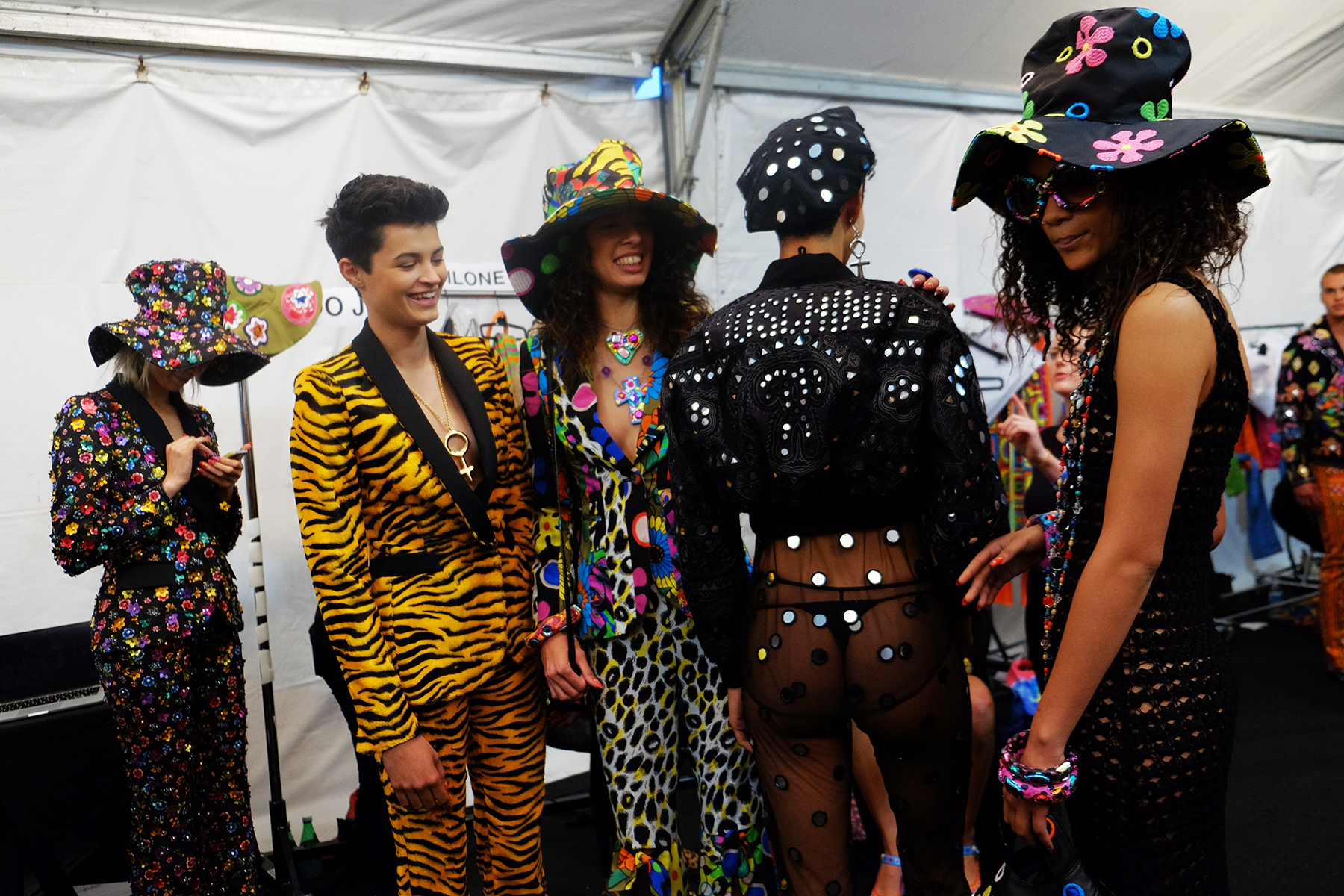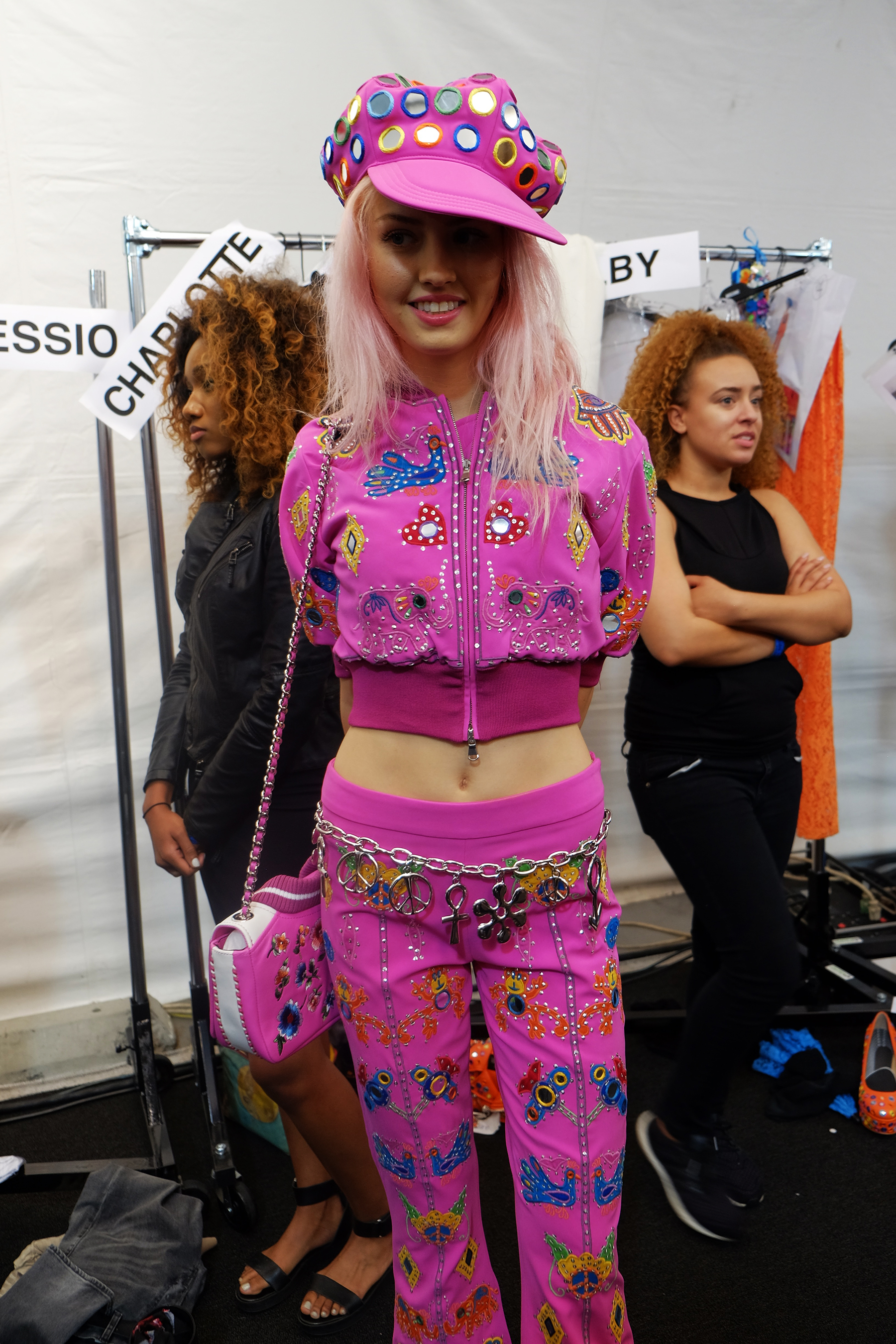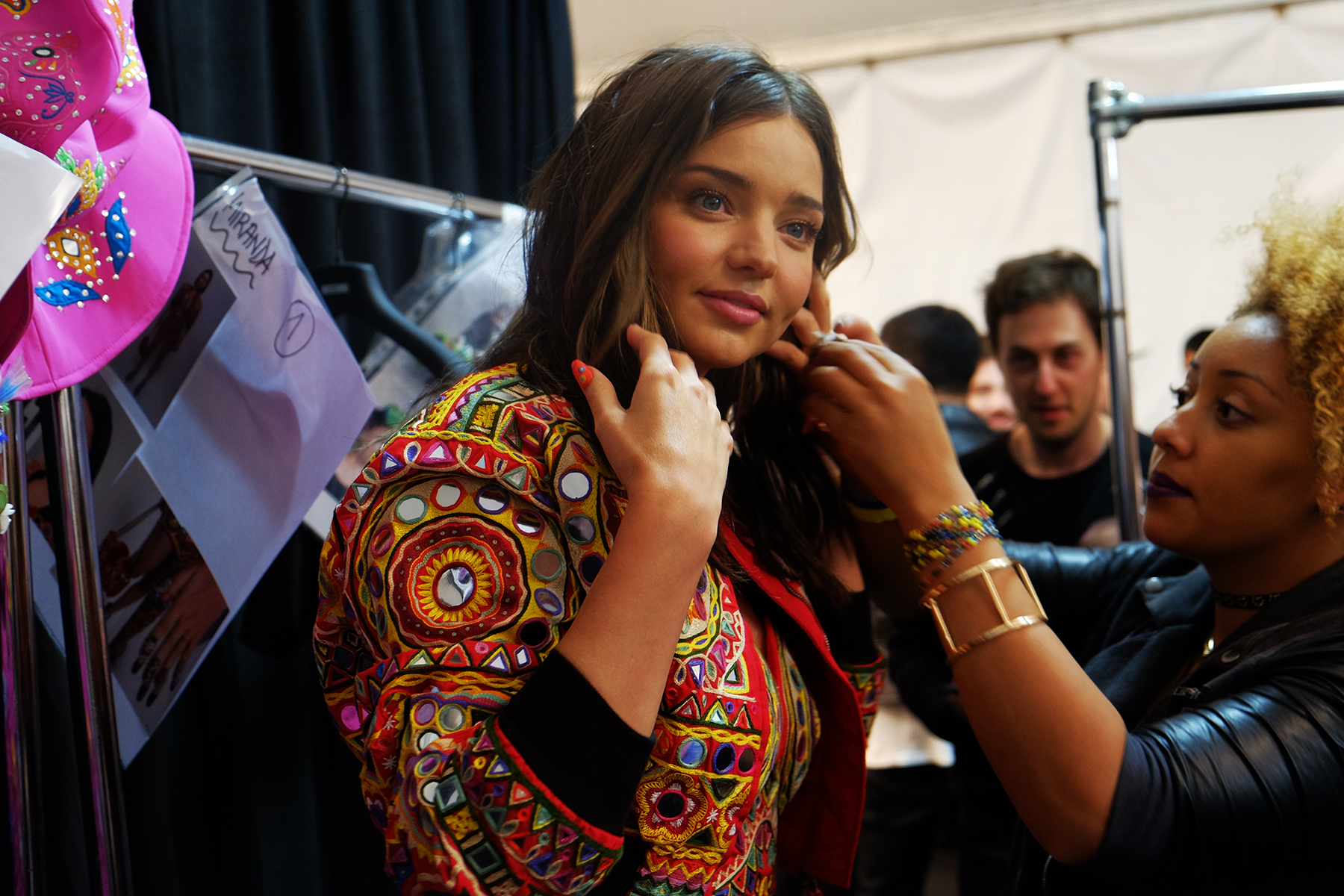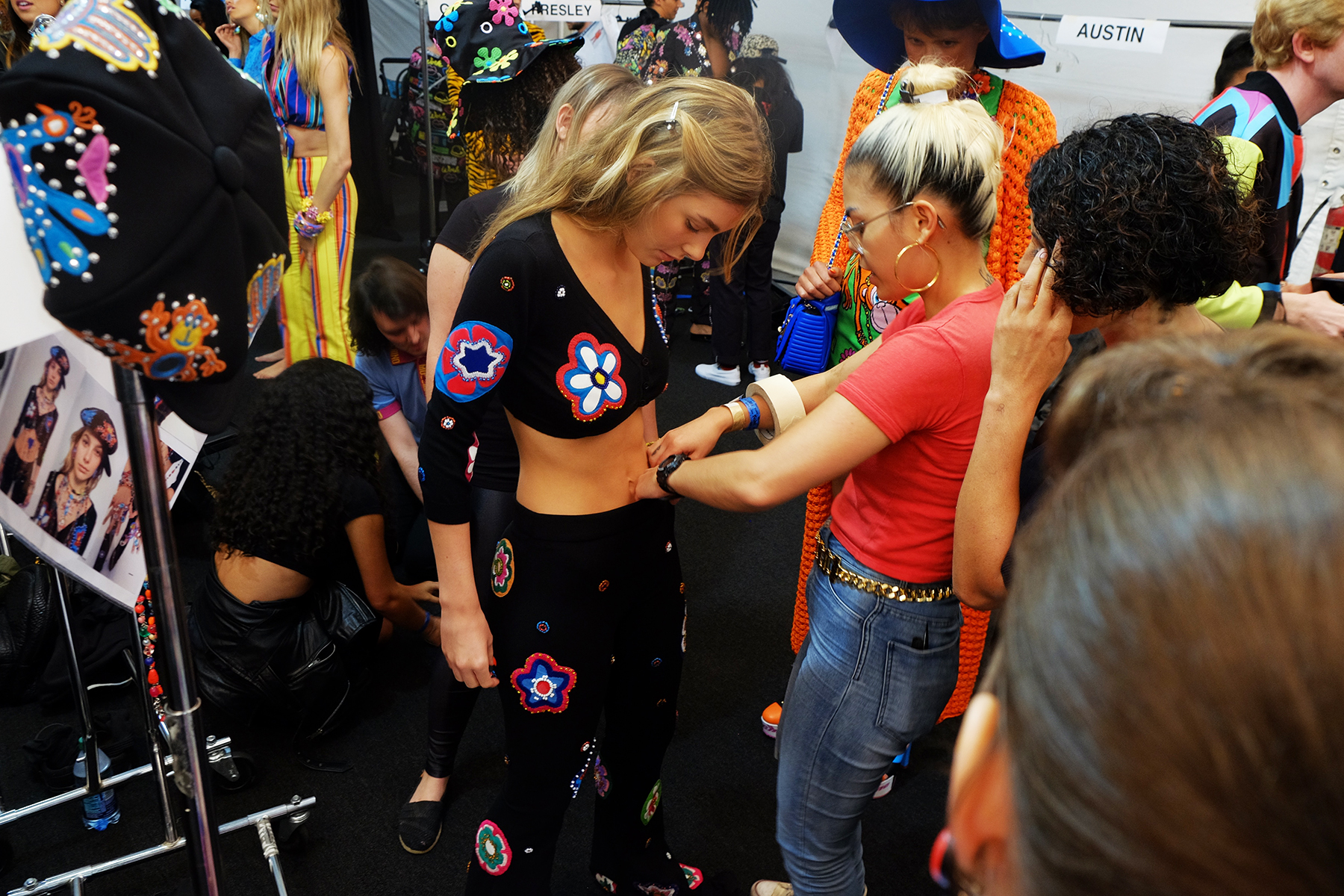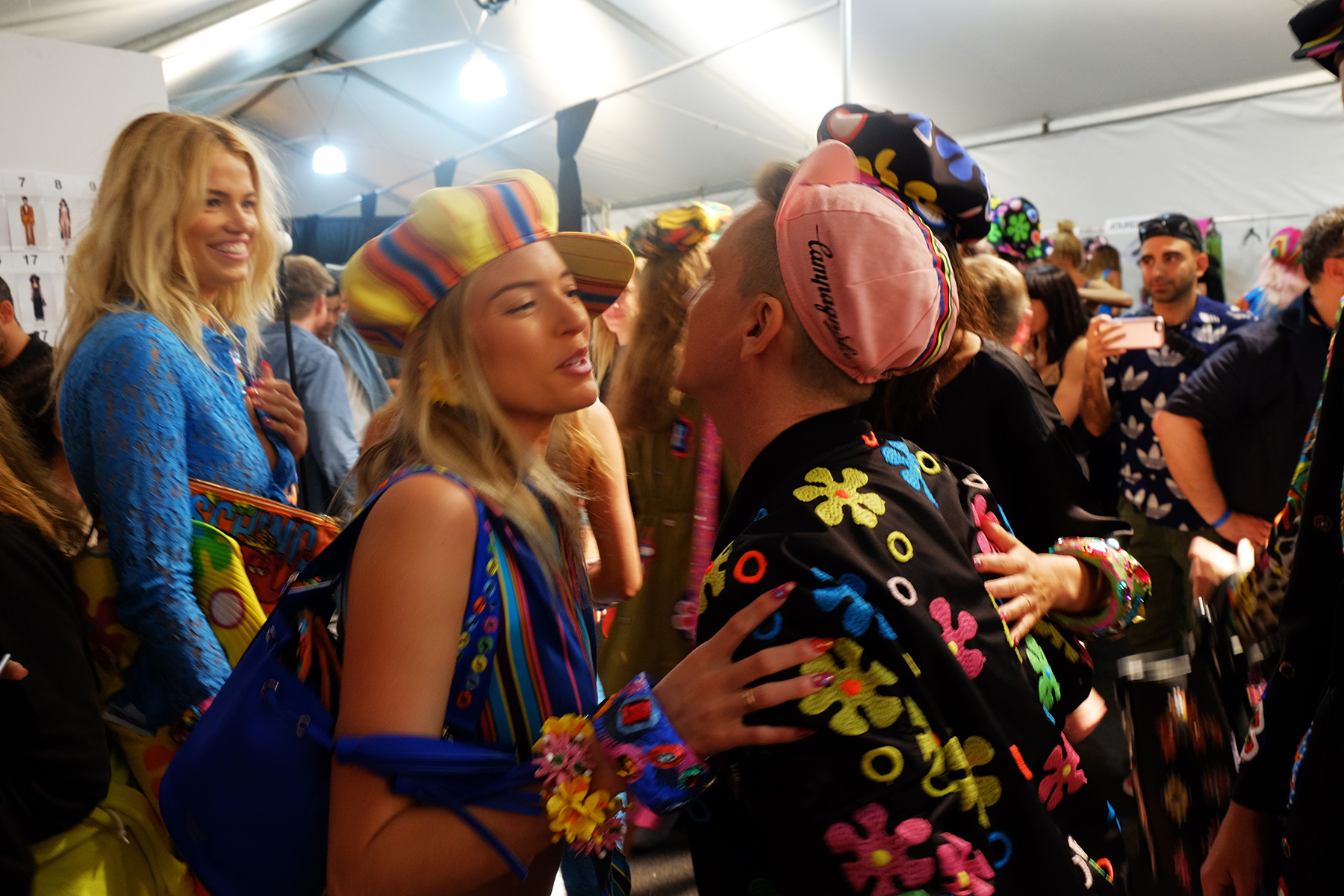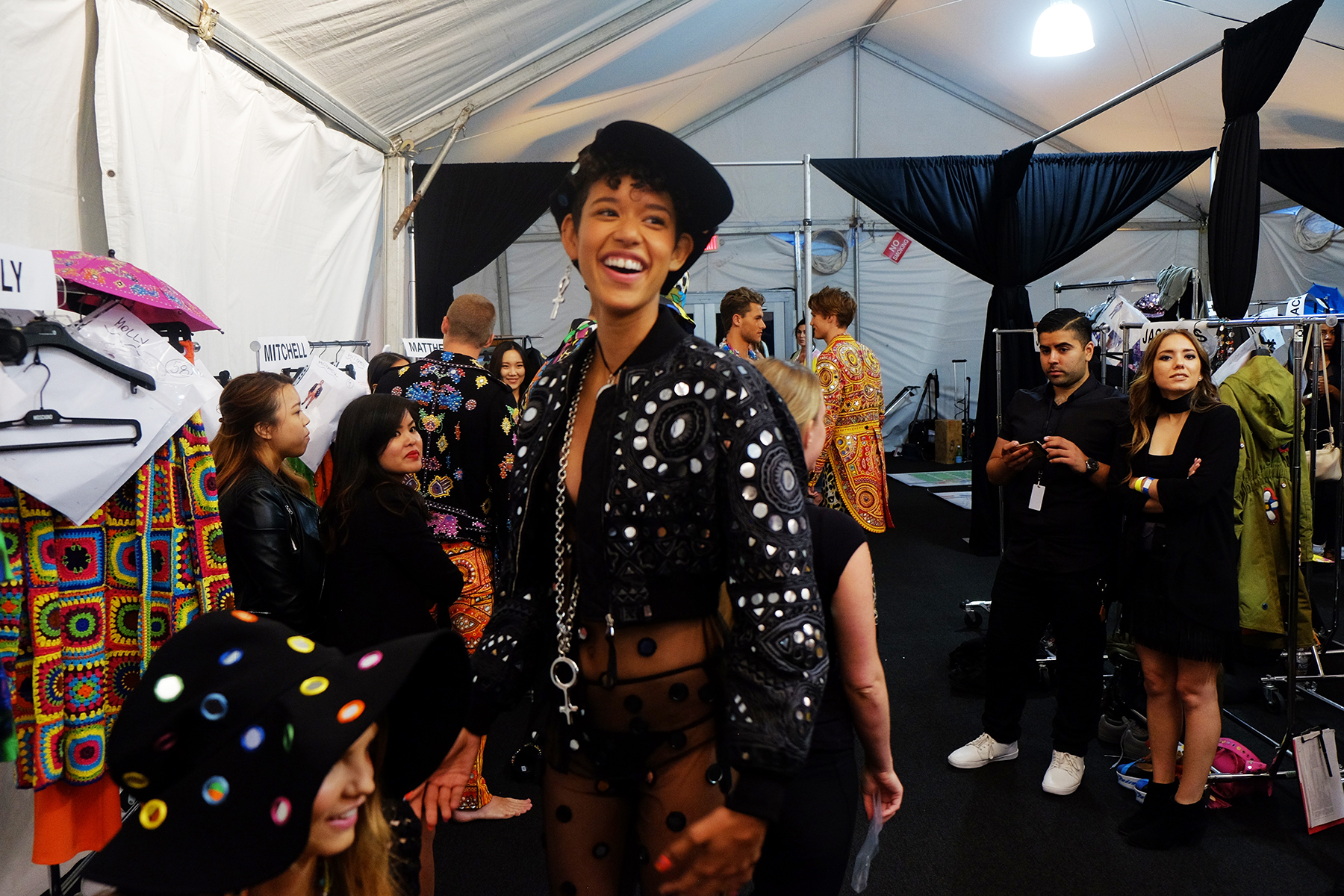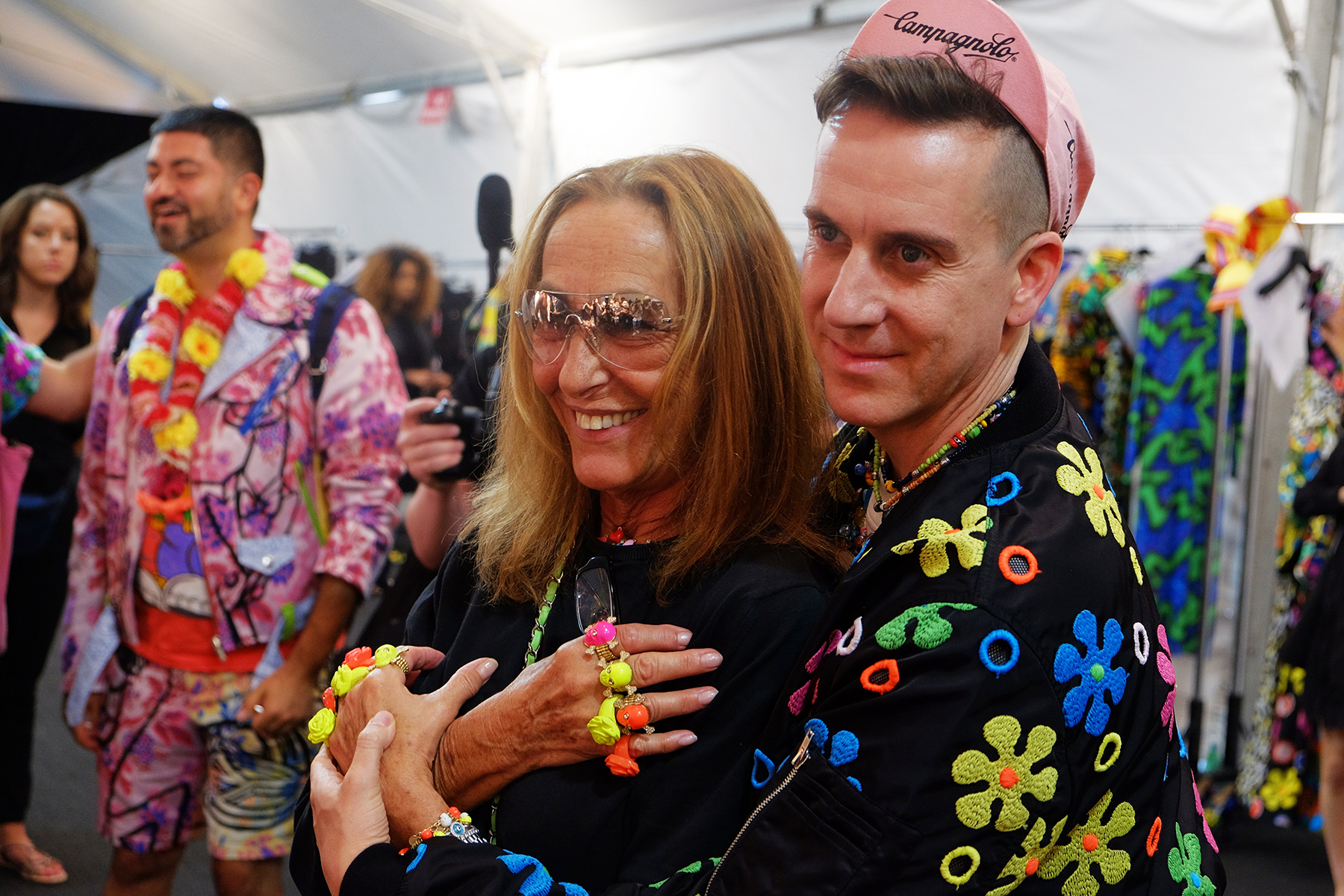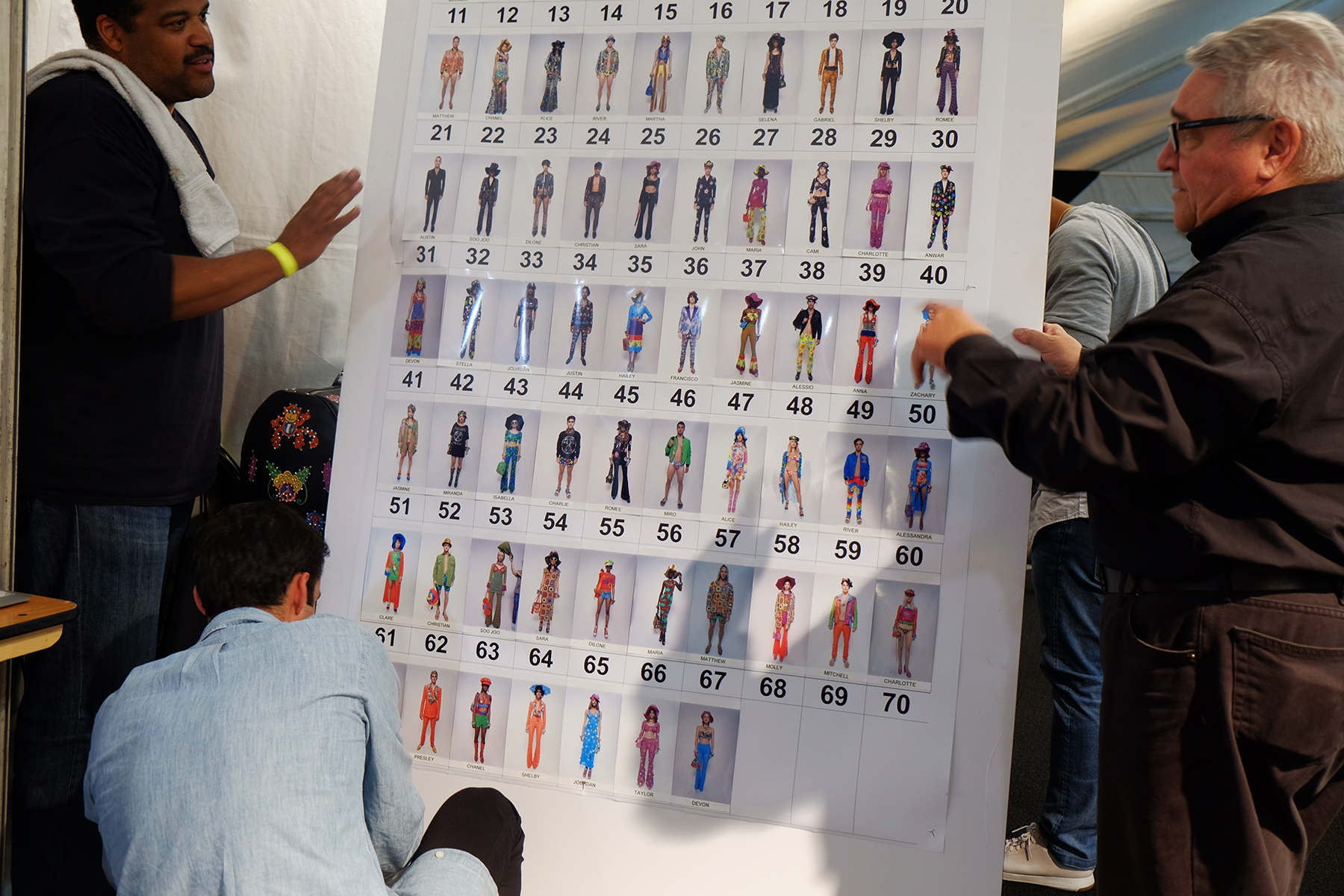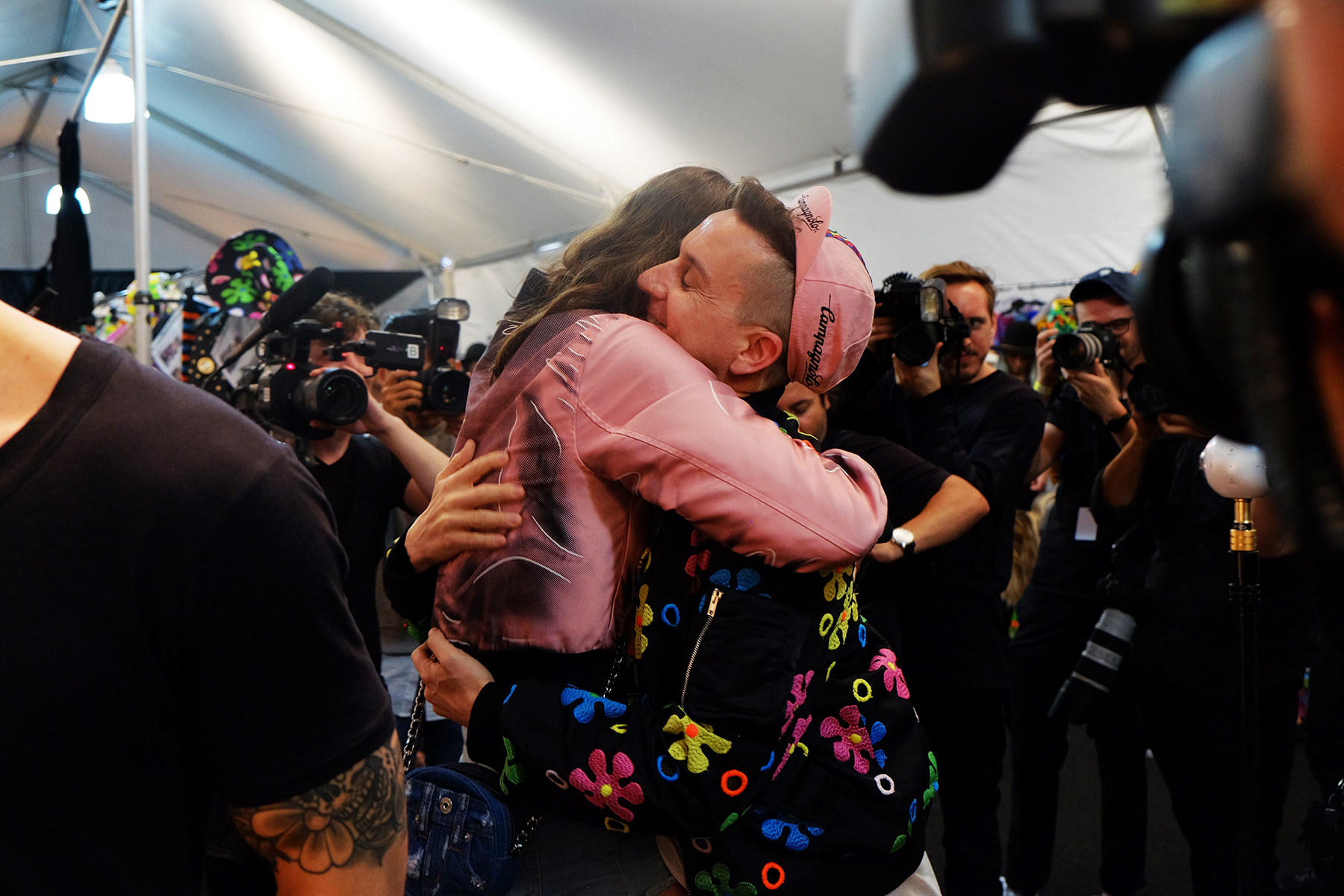Man loses his election and seeks comfort in the arms of another woman who comes to bear another of his children. Medea unravels the way so many of her generation do, dissolving into the doom scroll of his social media, subsisting on Hot Pockets, and watching the Real Housewives while contemplating all the ways that she was “prettier and smarter than all of those embarrassing women,” and how “they all had more power.” Her ire is characterized by a perfume of winter spices, citrus, unwashed body, earth, blood, and burning fire. The dancers perform duets that feel like the competing psyche of a dual personality. They push each other’s heads and bite each other’s hands. They carry each other twisted and inverted, memetically gesture toward an invisible bow pulled taught with potential, fall into splits, and weave themselves into surprising systems of support. They orbit chaotically like an electron cloud around a still nucleus where what appears to be a central ego played by Okeowo is carried front and center. Our narrator recites their final verse wherein Medea ultimately decides to burn down the house where Man, his pregnant mistress, and her two sons are sleeping. As in the original tragedy, Medea flees and decides to start a new life elsewhere, “she was going to BE Man in her next story, she was going to rebrand.” And there we are, left with a parting bouquet that conjures the scent of the innocents: sweet bread, warm skin, blood, and of course, milk.
My lasting reflections are multifold and complicated. The scope of this experience felt so much bigger than what could be encompassed by a 30-minute performance on the pedestrian pavement of Chung King Road. It felt like something that exacted the attention of a full-length work on a proscenium stage. A duration and location worthy of the masterful choreography directed by Mamie Green and Megan Paradowski could breathe more life into the exigence of the tragedy. Performed and choreographed in collaboration with the accompanying dancers: Keilan Stafford, Marirosa Crawford, Claire You, and Madi Tanguay, I left feeling like each one of them packed their talent into a container that begged to be expanded.
It also gave rise to thoughts on social systems scientist, futurist, and cultural historian, Riane Eisler’s cultural transformation theory. Among its many claims, this theory proposes that patriarchy, or dominator society, is not so enduring a form of social organization as it seems; that humans lived in partnership societies for millennia that weren’t defined by the rule of one gender class over another. She suggests that the role of many Greek tragedies was to redefine traditions of matrilineage (the idea that children belong first to their mothers and are named respectively) into a new era of patrilineage. Although, many treat Euripides’ Medea with a more feminist reading than other Greek tragedies due to her “getting away with the crime,” I would venture to guess those are the same people who saw a feminist bent in Emerald Fennell’s Promising Young Woman, a film where, Cassandra (another tragic Greek heroine) played by Carey Mulligan, exacts revenge on all men who cross her path. In her book Anxiety veiled: Euripides and the traffic in women, Nancy S. Rabinowitz states that the reason why Medea “turns her anger at her husband into violence against her children” is because “we are the heirs of mythology handed down not by the Medeas of the past but by the Jasons.” We are wont to sympathize with her over Jason in the first act only to be punished for our naivety in the last. The underlying thesis in all of these tragedies almost invariably serves us with the warning that women are not to be trusted with the full agency that is rightfully entitled to men. As a play that was initially received tepidly by Greek audiences, it’s intriguing that it has received more modern adaptations than almost any other. My sincere hope for Medea, as she will likely live on in the current and future zeitgeists, is that she might one day abscond with her two sons that she suckled with her two breasts and ensure that they are known by her last name, whatever it may be.












